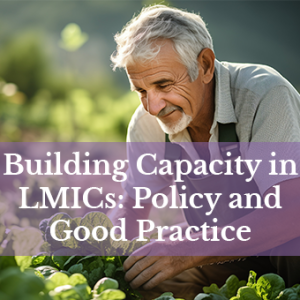Presenter(s):
Iraguha Moses, Doctors for Global Health Uganda/Kisoro District Hospital, Uganda
Abstract
Depression is extremely common among older adults in in Africa; prevalence has been measured at 26.3 – 43.1%, depending on the tool used for assessment. Depression is often related to poverty, hunger, social isolation, grief, chronic disease, life changes, or various forms of abuse. In rural Ugandan villages, lack of access to health care services reduces the likelihood of older adults receiving treatment for mental health problems.
The Kisoro Village Health Worker (VHW) program was established by Kisoro District Hospital in 2007, in partnership with the community-based organization Doctors for Global Health Uganda, to provide preventive, clinical, and health education services in 52 rural villages. The Kisoro Elders Project was established in 2017 to address lack of health services for older adults in VHWs’ villages. VHWs were taught to screen for problems of vision, hearing, mobility, pain, depression, and energy poverty, and to provide low-cost interventions which immediately alleviated the problems, improving functional status and quality of life.
The Kisoro Elders Project Director and a mental health nurse specialist taught VHWs to screen for depression using the Patient Health Questionnaire 9 (PHQ-9), and to provide small group support for mild to moderately depressed older adults using the Interpersonal Therapy (IPT) methodology. (Older adults with evidence of severe depression/suicidality are referred immediately for follow-up by the mental health team). IPT is an intervention developed at Columbia Teachers’ College in New York for depression treatment in low-resourced countries. It is based on peer counseling, group support, and problem solving.
Challenges encountered included: 1) the need to culturally adapt the PHQ-9 for people living in extreme poverty; 2) the need for VHWS to understand certain concepts such as the numerical scale used in the PHQ-9; 3) lack of VHW skills in keeping written notes; 4) the need to manage expectations of help beyond mental health support, such as money or pain management; and 5) the unfeasibility of adhering to the IPT protocol calling for a PHQ-9 to be completed for each participant at each of 8 weekly sessions. Strengths included the deep trust villagers have in their VHW, most of whom have been working in a respected role in their communities for almost two decades, and the noticeably positive response of the older adults to their groups, transitioning from silently staring at the ground to enthusiastically participating in discussions.
For the first 8 small groups, comprised of 69 older adults, data are purely qualitative. Participating older adults almost uniformly reported great subjective improvement in their moods, some likening the magnitude of benefit to that of a miracle (“Before I couldn’t get out of bed, and now I’m dancing!”). For 5 current groups, before and after PHQ-9 data are being obtained. VHWs, with continuing education and support by the 6-member Depression Project Team, all with degrees in social sciences, are gradually becoming more confident in teaching IPT material, keeping records, and managing group dynamics.
This project demonstrates the feasibility of empowering VHWs to address the mental health crisis in older adults living in rural villages.
Bio(s):
Iraguha Moses is the Director of the Kisoro Elders Project at Kisoro District Hospital in Kisoro, Uganda. He graduated from Uganda Christian University in 2011 with a Bachelor’s Degree in Social Work and Social Administration, and also obtained a Certificate in Administrative Law from the Uganda Law Development Center in 2011. He has completed all of the requirements for a Master’s degree in Social Work with specialization in Geriatric Social Work from Uganda Christian University. Since 2018, as Director of the Kisoro Elders Project, he has been training and supervising Village Health Workers in the aspects of their roles which provide screening and low-cost interventions for common problems of aging for older adults living in extreme poverty in rural villages of Kisoro District. In 2024 he also assumed the role of Director of The Center for Aging in Uganda (aginginuganda.org). He is married and has two children.

